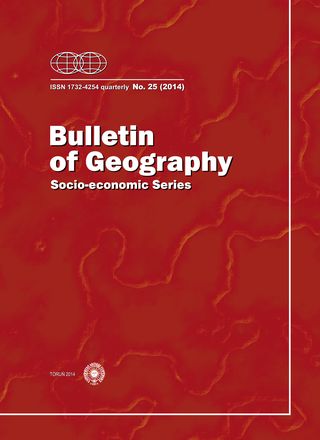Transport cost in location practice and economic geography: traditional theories, some new dimensions and policy implications
Transport cost in location practice and economic geography: traditional theories, some new dimensions and policy implications
Author(s): Manolis ChristofakisSubject(s): Economy
Published by: Wydawnictwo Naukowe Uniwersytetu Mikołaja Kopernika
Keywords: transport cost, iceberg cost, economic geography, location theory, location practice
Summary/Abstract: This paper outlines the main theoretical approaches to the role of transport in spatial organization and investigates possible new extensions at a theoretical and practical level, focusing on the analysis of transport cost. Beginning from the traditional theories of spatial distribution and the location of economic activities under transport cost, the analysis focuses on the related approaches of the new economic geography, which are based on the assumptions of the known “iceberg costâ€. After that, through the presentation of indicative empirical studies, the paper attempts to clarify new issues that should be taken into account in the relevant theoretical considerations as well as in the political practice. Thus, factors such as the change of production structure in the modern economies with the production of more quality products, lower mass, and higher relative value and intangible goods, in combination with the improved transport technology, have contributed to a continuous reduction of the transport cost of raw materials and productive goods over the years. These developments along with the growing importance of cost of moving people should be taken into account in the new theoretical interrogations and the political practice of regional and urban development.
Journal: Bulletin of Geography. Socio-economic Series
- Issue Year: 2014
- Issue No: 25
- Page Range: 55-67
- Page Count: 13
- Language: English

